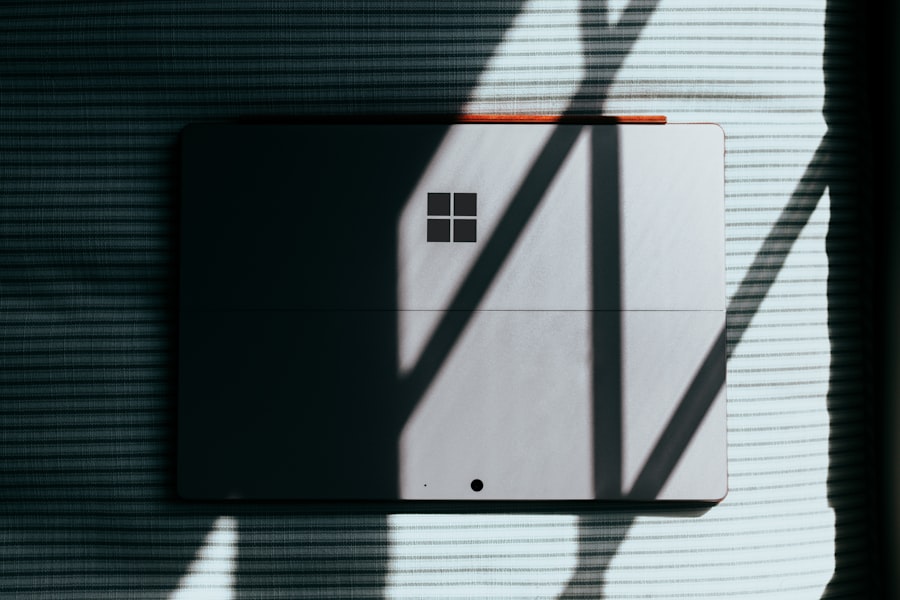Chickens, like all animals, are susceptible to heat stress, especially during the hot summer months. Heat stress occurs when the chicken’s body temperature rises above the normal range, causing discomfort and potential health issues. Chickens are particularly sensitive to high temperatures because they lack sweat glands and rely on panting to cool down.
When the ambient temperature is too high, chickens may struggle to regulate their body temperature, leading to heat stress. This can result in decreased egg production, poor growth, and even death if not properly managed. It’s important for chicken owners to understand the signs of heat stress in chickens, such as panting, lethargy, reduced feed intake, and spread wings.
By recognizing these signs, owners can take proactive measures to prevent heat stress and ensure the well-being of their flock. Heat stress in chickens can be exacerbated by factors such as high humidity, lack of shade, and poor ventilation. It’s crucial for chicken owners to be aware of these risk factors and take steps to mitigate them.
By understanding the physiological responses of chickens to heat stress, such as increased respiratory rate and reduced feed intake, owners can better appreciate the impact of high temperatures on their flock. Additionally, knowing the ideal temperature range for chickens (around 65-75°F) can help owners recognize when their flock is at risk of heat stress. By being knowledgeable about the causes and effects of heat stress in chickens, owners can implement effective strategies to keep their flock cool and comfortable during hot weather.
Table of Contents
Key Takeaways
- Heat stress in chickens can lead to decreased egg production, poor growth, and even death
- Providing adequate shade and ventilation in the coop is essential to help chickens stay cool
- Offering cool treats and fresh water can help chickens regulate their body temperature
- Managing the coop temperature through insulation and proper ventilation is crucial in preventing heat stress
- Creating dust baths for natural cooling can help chickens lower their body temperature
- Adjusting feeding schedules for cooler times of day can prevent chickens from overheating
- Monitoring and observing chicken behavior for signs of overheating is important for early intervention
Providing adequate shade and ventilation
Shade: A Crucial Element in Heat Stress Prevention
One of the most important steps in preventing heat stress in chickens is to provide adequate shade in their living environment. Shade is essential for protecting chickens from direct sunlight and reducing the ambient temperature in their coop or run. This can be achieved by planting trees or installing shade cloth over the chicken’s outdoor area.
Ventilation: Allowing Hot Air to Escape and Fresh Air to Circulate
Additionally, ensuring proper ventilation in the coop is crucial for allowing hot air to escape and fresh air to circulate. This can be achieved by installing windows, vents, and fans to promote air flow and reduce the build-up of heat inside the coop.
Optimizing Coop Orientation for Maximum Shade and Airflow
Furthermore, it’s important to consider the orientation of the coop or run to maximize shade and airflow. Placing the coop in a location that receives shade during the hottest parts of the day can help keep the chickens cool. Additionally, positioning windows and vents to capture prevailing winds can enhance natural ventilation and cooling.
By providing adequate shade and ventilation, chicken owners can create a more comfortable living environment for their flock and reduce the risk of heat stress.
Offering cool treats and fresh water

In addition to providing shade and ventilation, offering cool treats and fresh water is essential for helping chickens cope with high temperatures. Cool treats such as frozen fruits and vegetables can provide a refreshing source of hydration and help lower the chicken’s body temperature. Watermelon, cucumbers, and frozen berries are popular choices for cool treats that chickens enjoy during hot weather.
Additionally, providing access to fresh, cool water is crucial for preventing dehydration and maintaining the chicken’s overall health. It’s important to regularly check water sources to ensure they are clean, cool, and easily accessible to the flock. Furthermore, adding electrolytes or vitamins to the chicken’s water can help replenish essential nutrients lost through panting and sweating.
This can support the chicken’s overall well-being and help them cope with the effects of heat stress. By offering cool treats and fresh water, chicken owners can provide their flock with additional sources of hydration and nutrition during hot weather, reducing the risk of heat stress and promoting their overall comfort.
Managing the coop temperature
Managing the temperature inside the coop is crucial for preventing heat stress in chickens. This can be achieved by using insulation to regulate the temperature and reduce heat transfer from the outside environment. Insulating the coop walls and roof can help maintain a more stable internal temperature and reduce the impact of external heat on the flock.
Additionally, using reflective materials on the coop exterior can help deflect sunlight and reduce heat absorption. Furthermore, using evaporative cooling methods such as misters or sprinklers can help lower the ambient temperature inside the coop. This can provide relief for chickens during hot weather and reduce the risk of heat stress.
It’s important to monitor the coop temperature regularly and make adjustments as needed to ensure a comfortable living environment for the flock. By managing the coop temperature effectively, chicken owners can minimize the risk of heat stress and support their flock’s well-being during hot weather.
Creating dust baths for natural cooling
Creating dust baths for chickens is a natural way to help them cool down during hot weather. Dust bathing is a natural behavior for chickens, where they roll around in dust or fine dirt to clean themselves and regulate their body temperature. Providing a designated area for dust bathing with fine sand or diatomaceous earth allows chickens to engage in this behavior and naturally cool down.
Dust bathing helps chickens remove excess oils from their feathers and skin, which can contribute to heat retention during hot weather. Additionally, dust bathing helps chickens control external parasites such as mites and lice, which can become more prevalent during warm months. By creating dust baths for chickens, owners can encourage natural cooling behaviors and support their flock’s overall health and comfort during hot weather.
Adjusting feeding schedules for cooler times of day

Feeding During Cooler Times
During hot weather, it’s essential to adjust feeding schedules to cooler times of day to reduce the risk of heat stress in chickens. Feeding chickens early in the morning or later in the evening when temperatures are lower can help minimize heat production from digestion and reduce metabolic heat load on the birds.
Benefits of Cooler Feeding Times
This allows chickens to consume their feed when they are more active and better able to regulate their body temperature. By doing so, chicken owners can help their flock cope with high temperatures more effectively and reduce the risk of heat stress.
Preventing Overeating and Reducing Metabolic Heat
Additionally, providing smaller, more frequent meals throughout the day can help prevent overeating and reduce metabolic heat production. This can support the chicken’s overall comfort and well-being during hot weather.
Monitoring and observing chicken behavior for signs of overheating
Monitoring and observing chicken behavior is crucial for identifying signs of overheating and taking proactive measures to prevent heat stress. By regularly observing their flock, owners can recognize changes in behavior such as panting, lethargy, reduced activity, or seeking out shade. These are all signs that indicate that chickens may be experiencing heat stress.
Additionally, monitoring egg production, feed intake, and overall flock activity can provide valuable insights into how chickens are coping with high temperatures. By staying vigilant and responsive to changes in behavior, owners can take proactive measures such as providing additional shade, cool treats, or adjusting feeding schedules to support their flock’s well-being during hot weather. In conclusion, understanding heat stress in chickens is essential for ensuring the well-being of your flock during hot weather.
By providing adequate shade and ventilation, offering cool treats and fresh water, managing coop temperature, creating dust baths for natural cooling, adjusting feeding schedules for cooler times of day, and monitoring chicken behavior for signs of overheating, you can effectively prevent heat stress in your flock and promote their overall comfort and health during hot weather.
If you’re looking for more tips on keeping your chickens cool in the summer, you might want to check out this article on The Chicken Coop Country Diner. It offers some great ideas for creating a comfortable and shaded area for your chickens to escape the heat.
FAQs
What are some signs that my chickens are overheated?
Some signs that your chickens may be overheated include panting, holding their wings away from their bodies, reduced egg production, and lethargy.
How can I keep my chickens cool in the summer?
You can keep your chickens cool in the summer by providing plenty of shade, ensuring good ventilation in the coop, offering cool water to drink, and providing frozen treats such as fruits and vegetables.
What are some ways to provide shade for my chickens?
You can provide shade for your chickens by using tarps, umbrellas, or natural shade from trees or shrubs. It’s important to make sure the shade is available throughout the day as the sun moves.
How can I improve ventilation in my chicken coop?
You can improve ventilation in your chicken coop by adding windows, vents, or fans to promote air circulation. This helps to prevent the buildup of heat and moisture inside the coop.
What should I do if my chickens are overheated?
If your chickens are overheated, you should move them to a cooler area with shade and provide them with cool water to drink. You can also use a mister or hose to lightly spray them with water to help lower their body temperature.
Meet Walter, the feathered-friend fanatic of Florida! Nestled in the sunshine state, Walter struts through life with his feathered companions, clucking his way to happiness. With a coop that’s fancier than a five-star hotel, he’s the Don Juan of the chicken world. When he’s not teaching his hens to do the cha-cha, you’ll find him in a heated debate with his prized rooster, Sir Clucks-a-Lot. Walter’s poultry passion is no yolk; he’s the sunny-side-up guy you never knew you needed in your flock of friends!







